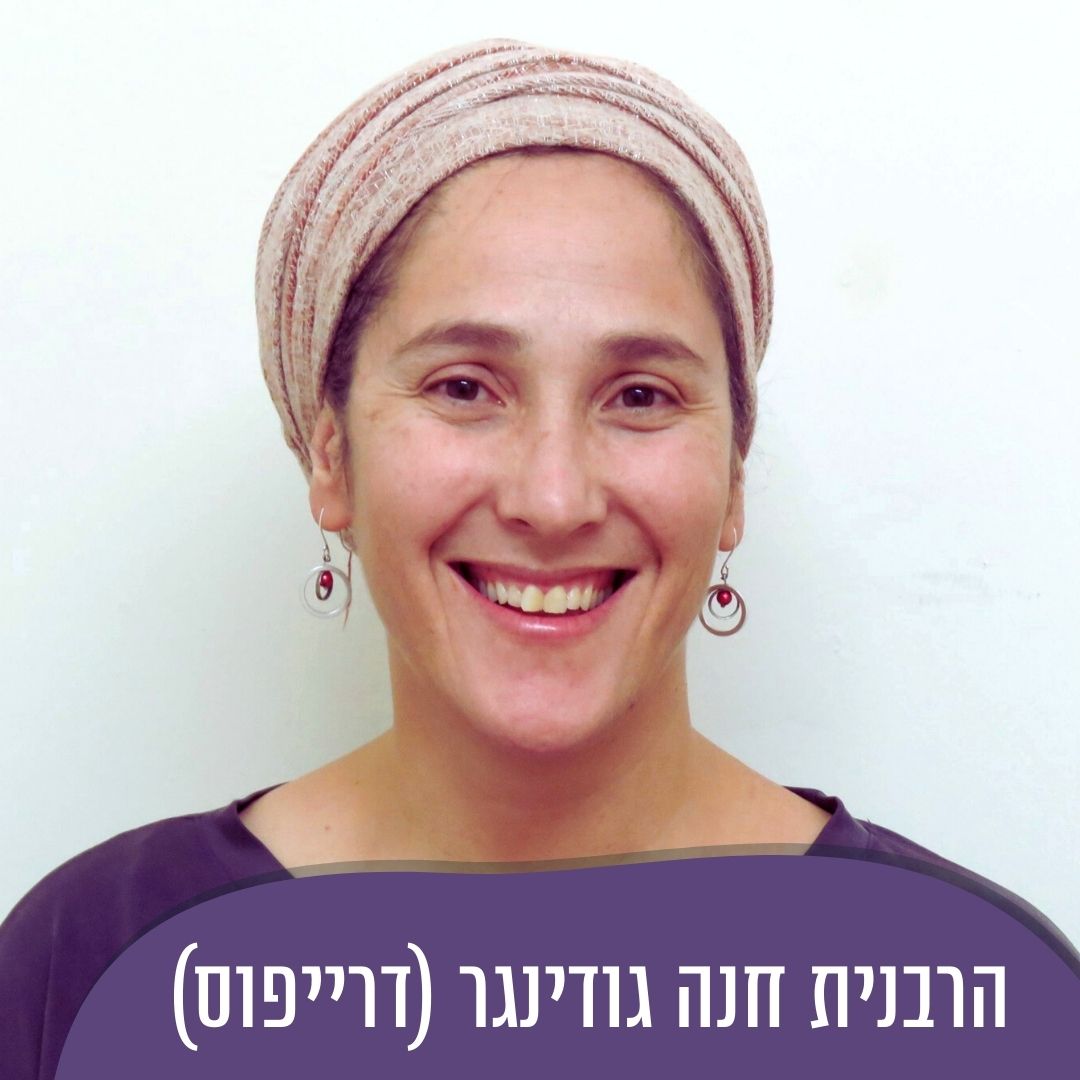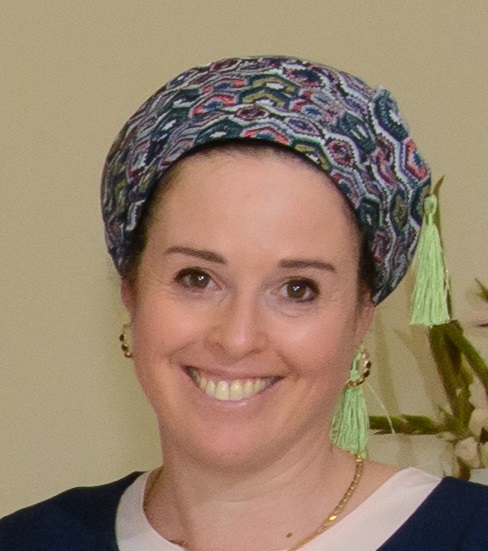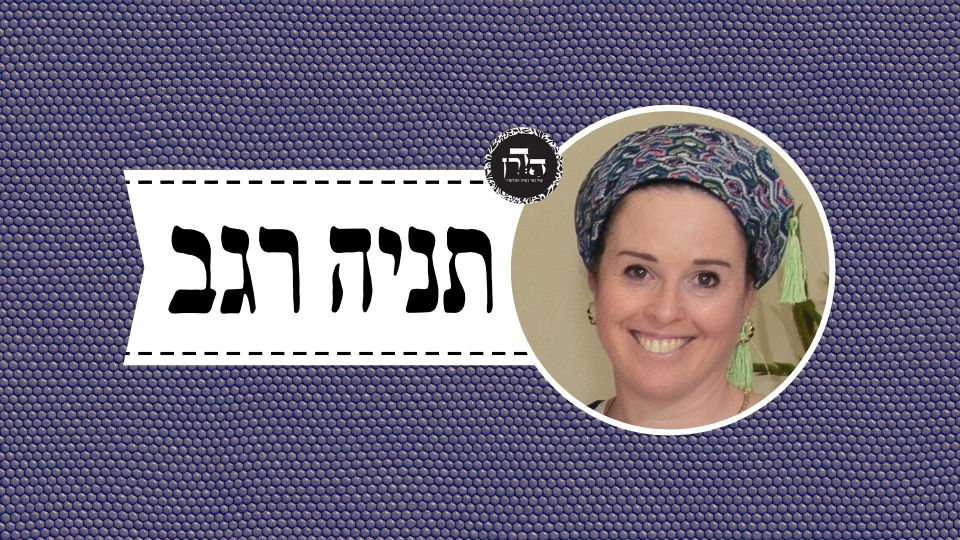חגיגה יט
כָּאן לְמַעֲשֵׂר. וּמְנָא תֵּימְרָא דְּחוּלִּין לָא בָּעוּ כַּוּוֹנָה — דִּתְנַן: גַּל שֶׁנִּתְלַשׁ וּבוֹ אַרְבָּעִים סְאָה, וְנָפַל עַל הָאָדָם וְעַל הַכֵּלִים — טְהוֹרִין. קָתָנֵי אָדָם דּוּמְיָא דְּכֵלִים, מָה כֵּלִים דְּלָא מְכַוְּונִי — אַף אָדָם דְּלָא מְכַוֵּין.
whereas here, the first baraita is referring to tithes, for which intention to purify oneself is required. And from where do you say this, that non-sacred food does not require the intention that one is purifying himself for the sake of eating it? As we learned in a mishna (Mikvaot 5:6): If a wave containing forty se’a of water became detached from the sea and fell on a person or on vessels, they are ritually pure. The mishna teaches that a person is similar to vessels: Just as vessels do not intend to be purified, as they obviously harbor no intentions, so too, the case of a person is referring to a situation in which he does not intend to purify himself, thereby implying that people can be ritually purified even without intention.
וּמִמַּאי? דִּלְמָא בְּיוֹשֵׁב וּמְצַפֶּה אֵימָתַי יִתָּלֵשׁ הַגַּל עָסְקִינַן, וְכֵלִים דּוּמְיָא דְּאָדָם, מָה אָדָם דְּבַר כַּוּוֹנָה — אַף כֵּלִים דִּמְכַוֵּין לְהוּ.
The Gemara rejects this proof: And from where is it clear that this is the meaning of the mishna? Perhaps we are dealing with one who is sitting and awaiting for when a wave will detach and fall on the vessels, and the implication is the opposite: Vessels are similar to a person: Just as a person is capable of intention to ritually purify himself, so too the case of the vessels mentioned in the mishna is referring to a situation where one intends on their behalf that they be purified.
וְכִי תֵּימָא בְּיוֹשֵׁב וּמְצַפֶּה, מַאי לְמֵימְרָא?
And if you would say that the mishna is indeed referring to one who is sitting and awaiting, what is the purpose of stating this? Such a halakha would not appear to offer a novelty; why would it be necessary to state it?
סָלְקָא דַּעְתָּךְ אָמֵינָא: לִיגְזוֹר דִּלְמָא אָתֵי לְמִיטְבַּל בְּחַרְדָּלִית שֶׁל גְּשָׁמִים, אִי נָמֵי נִגְזוֹר רָאשִׁין אַטּוּ כִּיפִּין, קָא מַשְׁמַע לַן דְּלָא גָּזְרִינַן.
The Gemara responds: It nevertheless provides a novel teaching, as it might enter your mind to say that it should be decreed that a detached wave does not affect purification, lest one come to immerse in a flow of rainwater whose volume is forty se’a. In other words, one might think that immersion in a flood of rainwater affects purification, whereas the halakha is that rainwater purifies only if it is gathered in one location. Alternatively, you might think that it should be decreed that purification by means of the edges of the waves that comes in contact with the ground should be ineffective due to the upper arcs of the waves. The mishna therefore teaches us that we do not so decree.
וּמְנָא תֵּימְרָא דְּלָא מַטְבִּילִין בְּכִיפִּין, דְּתַנְיָא: מַטְבִּילִין בְּרָאשִׁין, וְאֵין מַטְבִּילִין בְּכִיפִּין, לְפִי שֶׁאֵין מַטְבִּילִין בָּאֲוִיר.
And from where do you say that one may not immerse in the arcs? As it is taught in a baraita: One may immerse in the edges of waves, but one may not immerse in their arcs, because one may not immerse in air. The area under the arc of a wave is considered mere air, despite the fact that the individual is surrounded by water on all sides.
אֶלָּא מֵהָא דִּתְנַן: פֵּירוֹת שֶׁנָּפְלוּ לְתוֹךְ אַמַּת הַמַּיִם, וּפָשַׁט מִי שֶׁיָּדָיו טְמֵאוֹת וּנְטָלָן — יָדָיו טְהוֹרוֹת, וּפֵירוֹת אֵינָן בְּ״כִי יוּתַּן״.
Rather, the proof that the purification with regard to non-sacred produce does not require intention is from that which we learned in a mishna (Makhshirin 4:7): In the verse that is referring to the preconditions required for fruit and seeds to be susceptible to ritual impurity, it is stated: “If water be put on seeds, and any of their carcasses fall there, it shall be impure to you” (Leviticus 11:38). If fruit fell into a water channel, and one whose hands were ritually impure extended his hands and lifted them up with the goal of removing them from the water channel, his hands are ritually pure, as he has purified them by inserting them into the water channel, and these fruits are not included in the category of “if water be put on seeds.” The verse is referring only to fruit that has intentionally been brought into contact with water. Since the fruit in this case was not intentionally made wet, it cannot as yet contract impurity.
וְאִם בִּשְׁבִיל שֶׁיּוּדְחוּ יָדָיו — יָדָיו טְהוֹרוֹת, וְהַפֵּירוֹת הֲרֵי הֵן בְּ״כִי יוּתַּן״.
And if he put his hands into the water channel in order to wash his hands, his hands are ritually pure, and the fruit is included in the category of “if water be put on seeds.” Since he intended to wet his hands, the contact of the fruit with this water renders them susceptible to ritual impurity. In any case, the mishna teaches that his hands are ritually pure in either situation, indicating that no special intention is required for purification.
אֵיתִיבֵיהּ רַבָּה לְרַב נַחְמָן: הַטּוֹבֵל לְחוּלִּין וְהוּחְזַק לְחוּלִּין — אָסוּר לְמַעֲשֵׂר. הוּחְזַק — אִין, לֹא הוּחְזַק — לָא!
Rabba raised an objection to Rav Naḥman from the mishna here: One who immersed for the purpose of eating non-sacred food and assumes a presumptive status of ritual purity for non-sacred food is still prohibited from eating tithes. The Gemara infers: If one immersed with the intention of assuming a presumptive status of ritual purity for non-sacred food, yes, he assumes that status; if he did not immerse with the intention of assuming that presumptive status, no, he does not assume that status. This proves that even for the sake of non-sacred produce, one must intend to assume the appropriate status of ritual purity.
הָכִי קָאָמַר: אַף עַל פִּי שֶׁהוּחְזַק לְחוּלִּין — אָסוּר לְמַעֲשֵׂר.
Rav Naḥman refutes this proof: This is what the mishna is saying: Even though he assumes a presumptive status of ritual purity for non-sacred produce, he is prohibited from eating tithes. In other words, the mishna does not teach that intention is required for eating non-sacred food in a state of ritual purity. Rather, it teaches that even if one intended to purify himself for non-sacred food, he is not purified with regard to tithes.
אֵיתִיבֵיהּ: טָבַל וְלֹא הוּחְזַק — כְּאִילּוּ לֹא טָבַל, מַאי לָאו — כְּאִילּוּ לֹא טָבַל כְּלָל?
He, Rabba, raised an objection to him from another teaching of our mishna: With regard to one who immersed without intending to assume a presumptive status of ritual purity, it is as if he has not immersed. What, is it not teaching that it is as if he had not immersed at all?
לֹא, כְּאִילּוּ לֹא טָבַל לְמַעֲשֵׂר, אֲבָל טָבַל לְחוּלִּין. הוּא סָבַר דַּחוֹיֵי קָא מְדַחֵי לֵיהּ. נְפַק דָּק וְאַשְׁכַּח דְּתַנְיָא: טָבַל וְלֹא הוּחְזַק — אָסוּר לַמַּעֲשֵׂר וּמוּתָּר לַחוּלִּין.
Rav Naḥman rejected this proof as well: No, it means that it is as if he has not immersed for tithes, but he is considered to have immersed for non-sacred produce, for which no intention is necessary. The Gemara comments: He, i.e., Rabba, thought that Rav Naḥman was merely refuting his proof by saying that the wording of the mishna does not conclusively prove his case, but he did not actually think that the mishna should be understood differently. However, he subsequently went and examined the sources and found that a baraita was explicitly taught in accordance with the opinion of Rav Naḥman: One who immersed and did not intend to assume a presumptive status of ritual purity is prohibited from eating tithes, but is permitted to eat non-sacred produce, even if he eats non-sacred produce only when ritually pure.
אָמַר רַבִּי אֶלְעָזָר: טָבַל וְעָלָה — מַחְזִיק עַצְמוֹ לְכֹל מַה שֶּׁיִּרְצֶה.
§ With regard to assuming a presumptive status of ritual purity, Rabbi Elazar said: If one immersed without any particular intention and ascended from his immersion, he may assume a presumptive status of ritual purity after his immersion for whatever he wishes. In his opinion, there is no need to have a definite intention in mind at the actual moment of immersion.
מֵיתִיבִי: עוֹדֵהוּ רַגְלוֹ אַחַת בַּמַּיִם, הוּחְזַק לְדָבָר קַל — מַחְזִיק עַצְמוֹ לְדָבָר חָמוּר, עָלָה — שׁוּב אֵינוֹ מַחְזִיק.
The Gemara raises an objection to this from the following baraita: In a case where one has immersed and is ascending, and one of his feet is still in the water, if he had originally intended to assume presumptive status of ritual purity for a minor matter, he may still intend to assume presumptive status for a major matter. But if he has fully ascended, he may no longer intend to assume a presumptive status for any other matter.
מַאי לָאו — אֵינוֹ מַחְזִיק כְּלָל!
The Gemara infers from this baraita: What, is it not teaching that if one has ascended he may not intend to assume a presumptive status of ritual purity at all, which proves that one may do so only if he is still at least partially in the water?
לֹא: עוֹדֵהוּ, אַף עַל פִּי שֶׁהוּחְזַק — מַחְזִיק, עָלָה, אִם לֹא הוּחְזַק — מַחְזִיק, וְאִם הוּחְזַק — אֵינוֹ מַחְזִיק.
The Gemara rejects this inference: No, it should be understood as follows: If he is still in the water, then although he previously intended to assume a presumptive status of ritual purity for a minor matter, he may now intend to assume a presumptive status of ritual purity for whatever purpose he wishes, since one can adjust his intention during his immersion. Once he has already ascended, if he did not intend to assume a presumptive status of ritual purity at all, but immersed without any intention, he may intend to assume a presumptive status of ritual purity for whatever he wishes even after ascending from the ritual bath; but if he did intend to assume a presumptive status of ritual purity for a minor matter, he may not intend to assume a presumptive status of ritual purity for a major matter, as his intention was fixed when he ascended from the ritual bath.
מַאן תַּנָּא עוֹדֵהוּ רַגְלוֹ אַחַת בַּמַּיִם? אָמַר רַבִּי פְּדָת: רַבִּי יְהוּדָה הִיא. דִּתְנַן: מִקְוֶה שֶׁנִּמְדַּד וְיֵשׁ בּוֹ אַרְבָּעִים סְאָה מְכֻוּוֹנוֹת, וְיָרְדוּ שְׁנַיִם וְטָבְלוּ זֶה אַחַר זֶה — הָרִאשׁוֹן טָהוֹר, וְהַשֵּׁנִי טָמֵא. אָמַר רַבִּי יְהוּדָה: אִם הָיוּ רַגְלָיו שֶׁל רִאשׁוֹן נוֹגְעוֹת בַּמַּיִם — אַף הַשֵּׁנִי טָהוֹר.
In relation to the above, the Gemara explains: Who is the tanna who taught that one whose foot is still in the water is considered to be still immersing himself? Rabbi Pedat said: It is the opinion of Rabbi Yehuda, as we learned in a mishna (Mikvaot 7:6): In the case of a ritual bath that was measured and found to contain exactly forty se’a of water, and then two individuals descended and immersed one after the other, the first one is ritually pure, since he immersed in a valid ritual bath, but the second is ritually impure. Because a small amount of water clings to the first individual, the ritual bath subsequently holds less than the requisite amount. Therefore, it does not purify the second individual. Rabbi Yehuda said: If the feet of the first one were still touching the water, so that he had not yet exited the ritual bath entirely while the second one immersed, the second is also ritually pure. This teaches that Rabbi Yehuda is of the opinion that one who still has a foot in the water is considered to be inside the ritual bath.
אָמַר רַב נַחְמָן אָמַר רַבָּה בַּר אֲבוּהּ: מַחְלוֹקֶת בְּמַעֲלוֹת דְּרַבָּנַן, אֲבָל מִטּוּמְאָה לְטׇהֳרָה — דִּבְרֵי הַכֹּל אַף הַשֵּׁנִי טָמֵא. וְהַיְינוּ דְּרַבִּי פְּדָת.
Rav Naḥman said that Rabba bar Avuh said: This dispute between the Rabbis and Rabbi Yehuda pertains to higher standards of ritual purity established by the Sages, where the obligation to immerse is due to a rabbinical ordinance. However, when the purpose of the immersion is to transition from full-fledged ritual impurity to purity, everyone agrees that the second individual is impure. And this is in accordance with the statement of Rabbi Pedat on this topic, who asserts that only Rabbi Yehuda maintains that one may assume a presumptive ritually pure status if one of his feet is still in the ritual bath.
אִיכָּא דְּאָמְרִי, אָמַר רַב נַחְמָן אָמַר רַבָּה בַּר אֲבוּהּ: מַחְלוֹקֶת מִטּוּמְאָה לְטׇהֳרָה, אֲבָל בְּמַעֲלוֹת דְּרַבָּנַן — דִּבְרֵי הַכֹּל אַף הַשֵּׁנִי טָהוֹר. וּפְלִיגָא דְּרַבִּי פְּדָת.
There are those who say a different version of this statement: Rav Naḥman said that Rabba bar Avuh said: This dispute is referring only to one who is obligated to immerse in order to transition from ritual impurity to purity, but with regard to higher standards of ritual purity established by the Sages, everyone agrees that even the second individual is ritually pure if the foot of the first is still in contact with the water. And consequently, this opinion disagrees with the statement of Rabbi Pedat, since, according to this version, all agree that with regard to higher standards of ritual purity, the immersion continues as long as a single foot remains in the water.
אָמַר עוּלָּא, בָּעֵי מִינֵּיהּ מֵרַבִּי יוֹחָנָן: לְרַבִּי יְהוּדָה, מַהוּ לְהַטְבִּיל מְחָטִין וְצִינּוֹרִיּוֹת בְּרֹאשׁוֹ שֶׁל רִאשׁוֹן?
With regard to the discussion above, Ulla said: I asked Rabbi Yoḥanan: According to Rabbi Yehuda, what is the halakha with regard to immersing small vessels, such as needles and knitting needles, on the head of the first individual immersing himself? Since Rabbi Yehuda maintains that one whose foot is still in the water is considered as immersed in the ritual bath, does this mean that his body and even his wet hair can serve as part of the ritual bath?
גּוּד אַחֵית אִית לֵיהּ לְרַבִּי יְהוּדָה, גּוּד אַסֵּיק לֵית לֵיהּ, אוֹ דִלְמָא: גּוּד אַסֵּיק נָמֵי אִית לֵיהּ?
The Gemara clarifies the dilemma raised by this question: Does Rabbi Yehuda accept only the principle of lowering the partition, meaning that an item positioned above another item is considered as if it continued downward, and therefore the water on the body of the one immersing is viewed as descending into the ritual bath, so that the bath retains its requisite size; but he does not accept the concept of raising the partition, so that the water in the ritual bath is not considered to rise up to one’s head, making him part of the ritual bath as well? Or, perhaps he also accepts the principle of raising the partition, which means that one is indeed considered part of the ritual bath?
אֲמַר לֵיהּ, תְּנֵיתוּהָ: שָׁלֹשׁ גְּמָמִיּוֹת בַּנַּחַל, הָעֶלְיוֹנָה, הַתַּחְתּוֹנָה וְהָאֶמְצָעִית; הָעֶלְיוֹנָה וְהַתַּחְתּוֹנָה שֶׁל עֶשְׂרִים עֶשְׂרִים סְאָה, וְהָאֶמְצָעִית שֶׁל אַרְבָּעִים סְאָה, וְחַרְדָּלִית שֶׁל גְּשָׁמִים עוֹבֶרֶת בֵּינֵיהֶן, רַבִּי יְהוּדָה אוֹמֵר: מֵאִיר הָיָה אוֹמֵר: מַטְבִּיל בָּעֶלְיוֹנָה.
Rabbi Yoḥanan said to him: You already learned it in the Tosefta (Mikvaot 3:3): If there are three depressions in the bed of a stream that are not completely dry, an upper one, a lower one, and a middle one; and the upper and lower ones hold twenty se’a each, while the middle one contains forty se’a, and a flow of rain runs between them, thereby linking the depressions one to another, Rabbi Yehuda says: My colleague, Rabbi Meir, would say: One may immerse in the upper one. This indicates that Rabbi Meir holds that the waters of the middle depression, which contains the requisite amount of water for a ritual bath, are considered to have ascended by means of the rainwater into the higher depression. Since Rabbi Yehuda cites his colleague’s statement without comment, he evidently accepts the principle of raising the partition.
וְהָתַנְיָא, רַבִּי יְהוּדָה אוֹמֵר:
Ulla raised a difficulty: But isn’t it taught in a baraita: Rabbi Yehuda says:
מֵאִיר הָיָה אוֹמֵר: מַטְבִּיל בָּעֶלְיוֹנָה, וַאֲנִי אוֹמֵר: בַּתַּחְתּוֹנָה וְלֹא בָּעֶלְיוֹנָה! אֲמַר לֵיהּ: אִי תַּנְיָא — תַּנְיָא.
Rabbi Meir would say: One may immerse in the upper one, and I say: In the lower one but not in the upper one. This demonstrates that Rabbi Yehuda does not accept the principle of raising the partition. Rabbi Yoḥanan said to him: If this baraita is taught, it is taught, and I cannot take issue with it. Therefore, it is clear that the matter is held in dispute between tanna’im and that Rabbi Yehuda does not accept the principle of raising the partition.
הַטּוֹבֵל לַחוּלִּין וְהוּחְזַק לַחוּלִּין כּוּ׳. מַנִּי מַתְנִיתִין — רַבָּנַן הִיא, דְּשָׁנֵי לְהוּ בֵּין חוּלִּין לְמַעֲשֵׂר.
§ It is taught in the mishna: One who immersed for the purpose of eating non-sacred food with the intention of assuming a presumptive status of ritual purity for non-sacred food it is prohibited for him to eat tithes. The Gemara comments: Whose opinion is expressed in the mishna? It is that of the Rabbis, who differentiate between non-sacred produce and tithes, since they maintain the following: If one who is required by rabbinic law to immerse touches non-sacred food, it remains pure, but if he comes into contact with tithes they are rendered ritually impure.
אֵימָא סֵיפָא: בִּגְדֵי עַם הָאָרֶץ, מִדְרָס לִפְרוּשִׁין. בִּגְדֵי פְרוּשִׁין, מִדְרָס לְאוֹכְלֵי תְרוּמָה.
However, in that case, say the latter clause of the mishna, which states that the garments of an am ha’aretz, who is not careful with regard to the halakhot of ritual purity, are considered to be rendered ritually impure by the impurity imparted by the treading of a zav, which is considered a primary source of ritual impurity, for perushin, individuals who are careful to eat even non-sacred food in a state of purity. The garments of perushin, although they are careful to remain ritually pure, are nevertheless considered to be rendered impure by the treading of a zav for priests who partake of teruma. Consequently, the latter clause differs from the opinion of the Rabbis in the earlier clause.
אֲתָאן לְרַבִּי מֵאִיר, דְּאָמַר: חוּלִּין וּמַעֲשֵׂר כַּהֲדָדֵי נִינְהוּ, רֵישָׁא רַבָּנַן וְסֵיפָא רַבִּי מֵאִיר?! אִין, רֵישָׁא רַבָּנַן וְסֵיפָא רַבִּי מֵאִיר.
Therefore, we have arrived at the opinion of Rabbi Meir, who said: Non-sacred produce and tithes are similar to one another, as this clause of the mishna does not distinguish between those eating non-sacred food and those eating tithes. Is the earlier clause the opinion of the Rabbis and the latter clause the opinion of Rabbi Meir? The Gemara answers: Yes; although it is unusual, in this instance we must explain that the earlier clause was said by the Rabbis and the latter clause by Rabbi Meir.
רַב אַחָא בַּר אַדָּא מַתְנֵי לַהּ בְּסֵיפָא חָמֵשׁ מַעֲלוֹת, וּמוֹקֵי לַהּ כּוּלָּהּ כְּרַבָּנַן.
However, Rav Aḥa bar Adda would teach that five levels of ritual purity are listed in the latter clause of the mishna, by counting the clause that states that the clothes of those who eat non-sacred produce in a state of purity are ritually impure for tithes, and in this way he establishes the entire mishna in accordance with the opinion of the Rabbis.
אָמַר רַב מָרִי: שְׁמַע מִינַּהּ חוּלִּין שֶׁנַּעֲשׂוּ עַל טׇהֳרַת הַקּוֹדֶשׁ — כְּקוֹדֶשׁ דָּמוּ. מִמַּאי —
§ Rav Mari said: They learn from the mishna that non-sacred produce that was prepared according to the level of ritual purity required for sacrificial food, i.e., with the same stringencies as required for sacrificial food, is like sacrificial food. From where is this deduced?



























